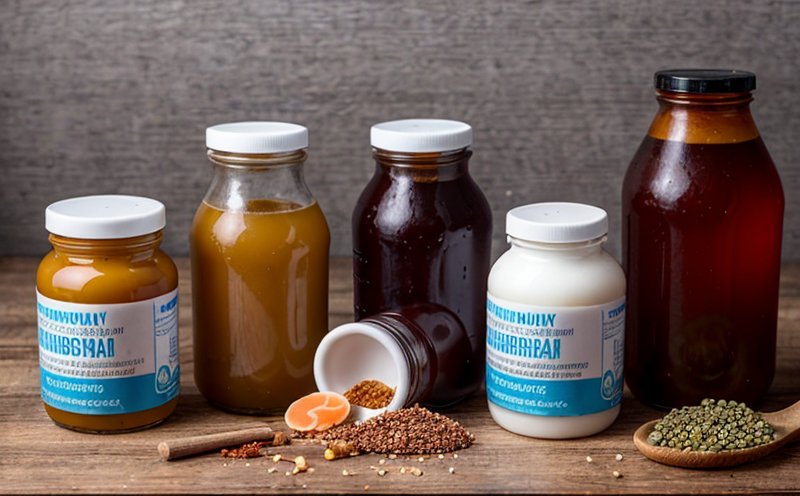IDF 153 Starter Culture Activity Testing in Fermented Dairy
The International Dairy Federation (IDF) Standard 153 provides a comprehensive method for the determination of starter culture activity in fermented dairy products. This standardized procedure ensures that cultures used in fermented dairy products are performing optimally, which is crucial for the consistent quality and safety of these products.
Starter cultures play a vital role in the fermentation process by converting lactose into lactic acid, contributing to flavor development and preservation of the product. The activity level of these cultures directly impacts the shelf life, taste, and microbial stability of fermented dairy products such as yogurt, cheese, and kefir. Therefore, accurate and reliable testing is essential for ensuring that the starter culture meets the required specifications.
Under IDF Standard 153, the activity is measured using a series of defined steps involving inoculation of milk with the starter culture followed by incubation under controlled conditions. The growth rate and acidification capacity of the culture are then quantified to determine its activity level. This method ensures that the cultures used in production meet the required standards for performance and quality.
For quality managers, compliance officers, R&D engineers, and procurement teams, ensuring that starter cultures meet IDF 153 standards is critical. It helps to maintain consistency across batches, which is essential for brand reputation and consumer trust. The test also supports regulatory compliance by verifying that the products meet international standards.
- Ensures consistent product quality: By accurately measuring starter culture activity, this test guarantees uniform performance in fermented dairy products.
- Aids in process optimization: Understanding culture activity can help refine production processes for better efficiency and output.
- Supports regulatory compliance: Meeting IDF standards ensures that products are up-to-date with international regulations and consumer expectations.
- Enhances safety: Properly measured cultures lead to safer products by ensuring they meet all necessary specifications for health and quality.
Why It Matters
The importance of IDF 153 cannot be overstated in the realm of fermented dairy microbiology testing. Properly functioning starter cultures are essential for producing high-quality, safe, and consistent fermented dairy products. The activity level directly affects product integrity and shelf life. Inadequate or inconsistent culture activity can lead to off-flavors, reduced shelf life, and potential safety concerns.
For stakeholders in the industry, ensuring that starter cultures meet IDF 153 standards is critical for several reasons:
- Quality Assurance: Consistent product quality is a key factor in maintaining brand reputation. Inconsistent culture activity can lead to variations in taste and texture.
- Consumer Trust: Consumers expect products that consistently meet their expectations. Ensuring that cultures are tested according to IDF 153 helps maintain trust and satisfaction.
- Regulatory Compliance: Meeting international standards such as IDF 153 is crucial for avoiding penalties and ensuring the legal sale of products in various markets.
- Safety: Properly measured cultures contribute to product safety by ensuring they meet all necessary specifications for health and quality.
The stakes are high, especially when dealing with large-scale production. A single batch of improperly tested culture can lead to significant financial losses due to recalls or downgraded products. Therefore, implementing IDF 153 testing is not just a compliance requirement but also an investment in product quality and market success.
Why Choose This Test
- Accurate and Reliable Results: Our laboratory uses state-of-the-art equipment to ensure precise measurements of starter culture activity, providing reliable results every time.
- Comprehensive Testing Capabilities: We offer a full range of microbiological testing services tailored to meet your specific needs, ensuring that you get the most relevant and actionable data.
- Expertise in Sector Standards: With years of experience in biological and microbiological testing, our team is well-versed in IDF standards, ensuring compliance with international guidelines.
- Dedicated Reporting: Our reports are detailed and easy to understand, providing you with clear insights into the activity levels of your starter cultures.
International Acceptance and Recognition
The IDF 153 standard is widely accepted and recognized globally for its reliability and accuracy in measuring starter culture activity. This recognition ensures that the results obtained from this test are valid across different regions and markets.
Many countries and regulatory bodies have adopted IDF standards as part of their own guidelines, ensuring a level playing field for producers worldwide. By adhering to these standards, manufacturers can be assured that their products will meet international expectations and requirements.
The use of standardized methods like IDF 153 also facilitates easier trade between countries by eliminating the need for repeated testing in different regions. This uniformity enhances efficiency and reduces costs for both producers and consumers.
Moreover, adherence to such standards can open up new markets and opportunities for manufacturers who are already compliant with internationally recognized protocols. It also enhances brand reputation as it demonstrates a commitment to quality and safety.





